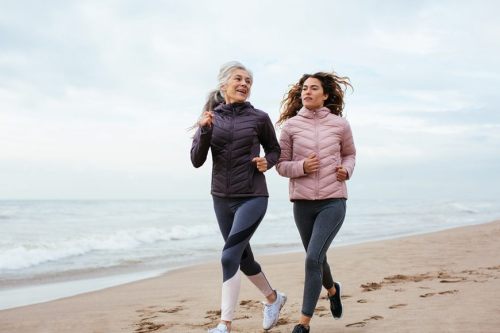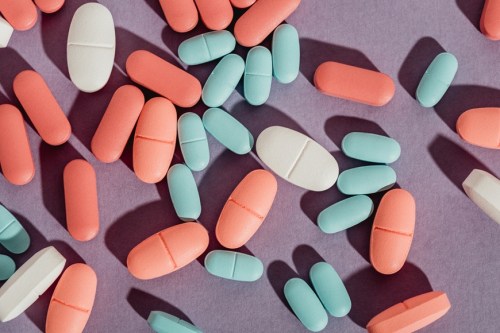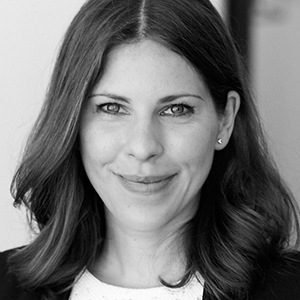5 ways you can actually slow the aging process
You can slow the signs of aging by changing your habits. Robin Berzin, MD, shares tips on diet, exercise, and supplements for people who want their bodies to age more slowly.

Every human is made to grow and age—that’s just a fact. But how*we age depends on a number of factors, and there are ways you *can* slow down the process down, says Robin Berzin, MD, CEO of the functional medicine practice Parsley Health. Here, the Well+Good Council member shares her medically backed advice for aging optimally. Follow it today and your future self will thank you.
There’s no magic pill that can reverse aging, but there are lifestyle changes you can make now—no matter what your age—to keep you feeling young for years to come.
Aging isn’t just skin-deep: It’s happening in your cells, tissues, and organs. So while you may be concerned about a wrinkle here or a fine line there, aging, which starts at around age 26, is actually much more complicated.
The process of biological aging is not the result of any one thing.
The process of biological aging is not the result of any one thing, but rather the accumulation of several things, many of them still being studied by scientists. Some theories with the most scientific evidence behind them include the roles of oxidative stress from free radicals, the process of glycation (sugar molecules bonding to proteins in your blood), telomere shortening, and the effect of inflammation.
Your best defense is working to modulate as many of these factors as you can, and it’s not as difficult as you might think to get measurable results.
For instance, one study had one group of participants adopt a plant-based diet, perform moderate exercise, and do stress-reducing activities such as yoga and meditation. The other group did not make any lifestyle changes. The scientists measured the length of telomeres—protective caps on the ends of chromosomes—in both groups’ white blood cells at the beginning of the study and five years later. The group that adopted the healthy lifestyle changes had an average increased telomere length of 10 percent, while the control group’s telomeres shortened by an average of 3 percent.
Why might this be significant? An abundance of research has shown that shorter telomeres are associated with diseases like cancer and decreased lifespan. It’s still unclear exactly how the healthy changes were able to alter telomere length, but the research showed that the more positive changes that were made, the greater the increase in telomere length.
If you’re ready to make changes today that will affect how you live in the future, here’s how you can modify your daily routine to feel ageless.

Add high intensity interval training (HIIT) to your weekly exercise schedule
Any type of exercise is important for maintaining your health, especially as you age. Aerobic exercise is crucial for maintaining cardiovascular health, while resistance training helps to maintain muscle mass and increases bone density. But it turns out HIIT, which is often thought of for weight loss, is also just as valuable for staving off aging. In fact, it could actually reverse some of the cellular signs of aging.
When Mayo Clinic researchers had a group of sedentary people do either weight training, interval training, or cardio exercise several times a week they found that while all of the participants had increased their fitness levels and improved blood sugar regulation, only the interval training group showed an increase in the number and health of their mitochondria. Mitochondria are the powerhouse of cells in which energy production occurs, and it’s been shown that decline in mitochondrial function is a major contributor to aging. I recommend my patients at Parsley Health do HIIT one to two days a week to help reverse cellular aging.

Skip the processed sugar
Eating a diet high in sugar can actually break down your skin’s collagen, the protein that gives skin its strength. That can lead to outward signs of aging (like dull, wrinkled skin and loss of elasticity). When you consume sugar, it reacts with proteins in your bloodstream to form advanced glycation end products (AGEs) through a process called glycation. The (aptly abbreviated) AGEs then damage proteins like collagen and elastin, the effect of which can be visible in your skin. And that’s not to mention the inflammation caused by sugar consumption that has been linked to age-related diseases, oxidative stress, and mitochondrial damage. For all of these reasons, I advise my patients to eliminate refined sugars from their diet and consume sugars like honey, maple syrup, and fruit in moderation.

Supplement with glutathione
Glutathione is a peptide made naturally by your body and found in all of its cells. It’s considered to be the most powerful antioxidant, playing a major role in detoxifying the body from environmental stresses, air pollutants, heavy metals, and other toxins. But as we age, glutathione levels decline, making us more vulnerable to oxidative stress.
Oxidative stress happens when unstable molecules called free radicals damage proteins, lipids, and DNA in our cells. Over time, this damage is associated with aging, age-related diseases, and reduced lifespan. New research suggests that boosting your glutathione levels can help decrease the oxidative stress you experience and fight aging. Look for LivOn’s lypo-spheric glutathione, which is the most easily absorbed.

Lessen the emotional and physical stress in your life
Your body reacts similarly to emotional and physical stress by activating the “flight or fight” response, releasing the hormones cortisol and adrenaline. This is a normal physiological reaction that we’re equipped to handle in small doses, but when you’re chronically stressed, whether from overexercising or constant mental pressure, the elevated levels of cortisol can generate free radicals.
Chronic stress is also associated with markers of inflammation, which is implicated in age-related diseases like insulin resistance, hardening of the arteries, and metabolic syndrome. To combat emotional stress and overtraining, I urge my patients at Parsley Health to incorporate yoga and meditation into their practice.

Reduce your exposure to environmental pollutants
Free radicals are generated by everyday bodily processes like breathing, but it’s the excess oxidative stress that’s important to prevent. Environmental pollutants are any type of chemical that’s been introduced to the environment by humans, including via air pollution, chemicals in cosmetics, and pesticides in food. One recent study showed that age spots on the skin increased by 25 percent with a relatively small increase in air pollution.
Long-term exposure to air pollution is also associated with cardiovascular disease, impaired cognitive function, cancer, and early death. People who were exposed to years of heavy doses of chemicals released from burning coal, oil, gasoline, tobacco, and wood, they showed shortened telomeres (a marker of biological aging) as compared to a control group. It may not always be possible to completely avoid things like air pollution, particularly if you live in a city, but you can limit your exposure in other ways by sticking to clean beauty products and shopping organic.
 Robin Berzin, MD, is the founder and CEO of Parsley Health, an innovative primary care practice with offices in New York, Los Angeles, and San Francisco. Dr. Berzin attended medical school at Columbia University. She is a certified yoga instructor and a meditation teacher.
Robin Berzin, MD, is the founder and CEO of Parsley Health, an innovative primary care practice with offices in New York, Los Angeles, and San Francisco. Dr. Berzin attended medical school at Columbia University. She is a certified yoga instructor and a meditation teacher.
What should Robin write about next? Send your questions and suggestions to [email protected].
Sign Up for Our Daily Newsletter
Get all the latest in wellness, trends, food, fitness, beauty, and more delivered right to your inbox.
Got it, you've been added to our email list.










